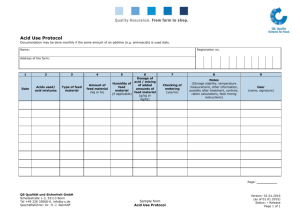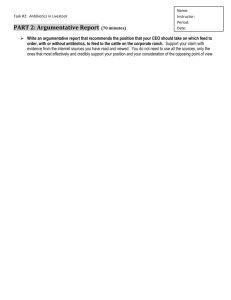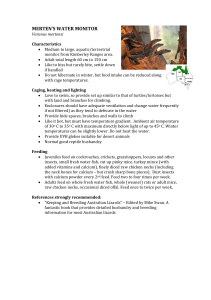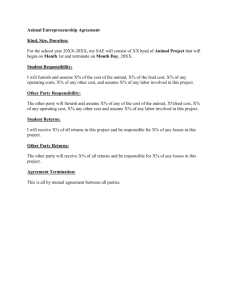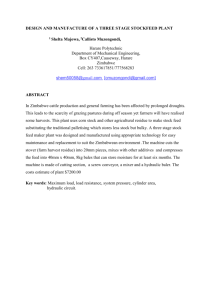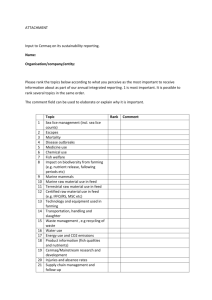VETERINARY PREVENTION AND FEED HYGIENE – LIST OF SKILLS
advertisement
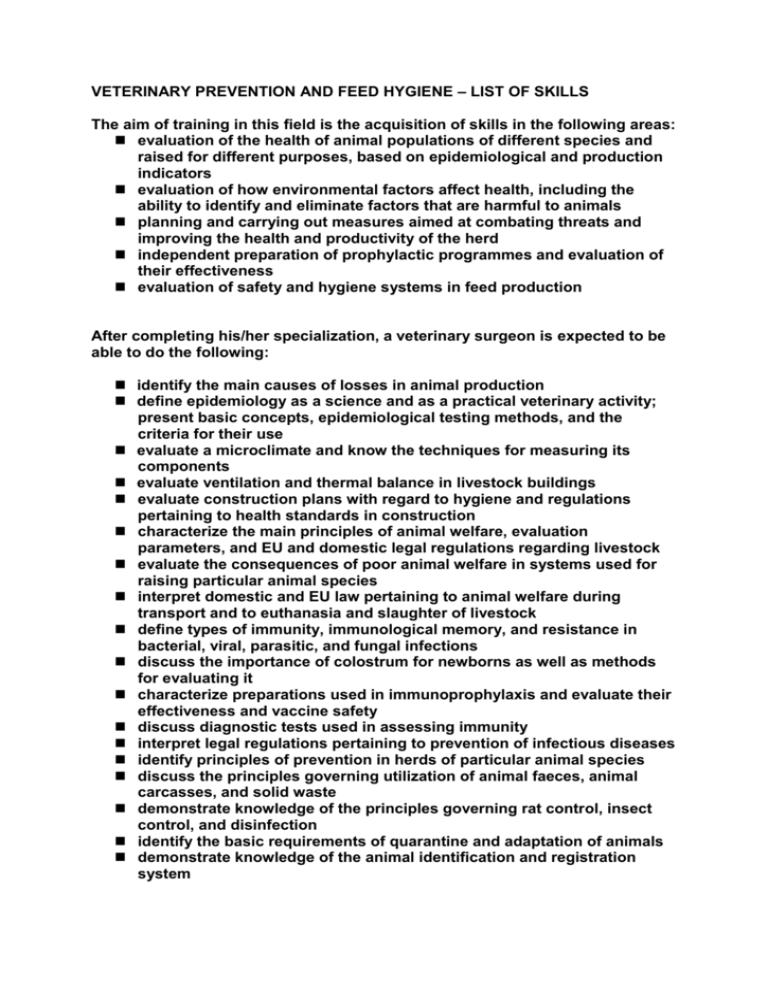
VETERINARY PREVENTION AND FEED HYGIENE – LIST OF SKILLS The aim of training in this field is the acquisition of skills in the following areas: evaluation of the health of animal populations of different species and raised for different purposes, based on epidemiological and production indicators evaluation of how environmental factors affect health, including the ability to identify and eliminate factors that are harmful to animals planning and carrying out measures aimed at combating threats and improving the health and productivity of the herd independent preparation of prophylactic programmes and evaluation of their effectiveness evaluation of safety and hygiene systems in feed production After completing his/her specialization, a veterinary surgeon is expected to be able to do the following: identify the main causes of losses in animal production define epidemiology as a science and as a practical veterinary activity; present basic concepts, epidemiological testing methods, and the criteria for their use evaluate a microclimate and know the techniques for measuring its components evaluate ventilation and thermal balance in livestock buildings evaluate construction plans with regard to hygiene and regulations pertaining to health standards in construction characterize the main principles of animal welfare, evaluation parameters, and EU and domestic legal regulations regarding livestock evaluate the consequences of poor animal welfare in systems used for raising particular animal species interpret domestic and EU law pertaining to animal welfare during transport and to euthanasia and slaughter of livestock define types of immunity, immunological memory, and resistance in bacterial, viral, parasitic, and fungal infections discuss the importance of colostrum for newborns as well as methods for evaluating it characterize preparations used in immunoprophylaxis and evaluate their effectiveness and vaccine safety discuss diagnostic tests used in assessing immunity interpret legal regulations pertaining to prevention of infectious diseases identify principles of prevention in herds of particular animal species discuss the principles governing utilization of animal faeces, animal carcasses, and solid waste demonstrate knowledge of the principles governing rat control, insect control, and disinfection identify the basic requirements of quarantine and adaptation of animals demonstrate knowledge of the animal identification and registration system define the principles governing supervision of production and sales of feed and medicated feed identify the principles governing official and internal control of nutrition and of the national programme for feed inspection under the supervision of the General Veterinary Inspectorate evaluate hazards in obtaining feed material and in feed production demonstrate knowledge of the HACCP, GHP, and GMP quality assurance systems in feed production plants define early warning systems and crisis response systems demonstrate knowledge of domestic and EU feed legislation regarding hygiene requirements for buildings and health conditions for food and nutrition, as well as pertinent regulations demonstrate knowledge of procedures such as those for quality assurance of raw material, pest control, cleaning, and keeping order evaluate laws pertaining to genetically modified food discuss the principles governing hygiene evaluation of packaging – legislation and inspection identify and interpret regulations and norms pertaining to animal feed define principles governing the detection, identification, and measurement of additives and contaminants, as well as methods of microbiological evaluation of animal feed demonstrate knowledge of official feed control and EU regulations regarding feed safety analyse threats to public health associated with feed hygiene identify the principles governing the collection and preparation of water and feed samples for analysis demonstrate knowledge of domestic and EU law concerning water quality, sanitary condition of equipment, and means of water treatment and disinfection
